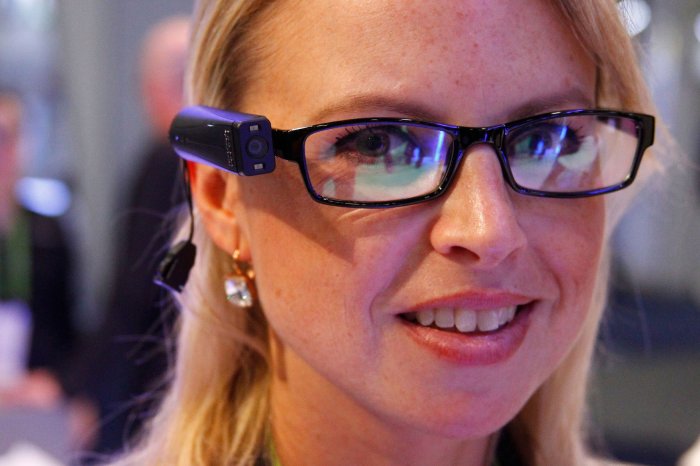
Jan. 12 (UPI) — Developers and innovators often make the biggest headlines at the CES for big-budget items like concept cars, but many of the more practical items at the technology convention can be worn on the body.
Most wearable technology, like socks to help diabetics avoid foot injuries and T-shirts that detect heart rate, has health-related applications. Other items are just plain fun.
Siren diabetic socks
A number of wearable technologies at CES are health-related, including socks developed for diabetic patients. The socks have temperature sensors built into the fabric meant to detect foot injuries, which people with diabetes are particularly susceptible to.
Inflammation causes a rise in temperature, which can give people an early sign of injury and diabetic foot ulcers. The sock sends signals to a cell phone, or a representative of Siren will call the wearer if a rise in temperature is detected.
OrCam MyEye

Among the wearable technologies at CES this year to assist the visually impaired is the OrCam MyEye. The device attaches to a pair of glasses and includes a camera and speaker.
The user points the camera toward a book, magazine or anything else they want to read and the device speaks the words through the speaker. It can read colors, currencies and bar codes on products.
MyEye also has facial-recognition software to identify people with whom the user interacts.
Philips’ SmartSleep

Philips targeted people trying to get a good night’s sleep with its SmartSleep headband. In addition to monitoring sleep quality, the headband detects when a user is in deep sleep and then pipes in white noise through the headband. The company says this helps users get better sleep.
SleepPhones

Other sleep technology at CES this year includes the SleepPhones headphones. The device doesn’t monitor sleep, but allows users a more comfortable way to listen to white noise or music throughout the night.
SleepPhones plug into a CD player, MP3 player or cellphone, and are worn like a headband.
Babaali Smart Ski Helmet

For the sports lovers, there’s a smart ski helmet with an integrated camera. Users wearing the helmet can take photos or videos while on the slopes.
Skiin clothing

One company showed off a whole product line of wearable technologies — bras, underwear, and T-shirts. Skiin’s clothing line includes sensors that detects hydration levels, temperature, heart rate, body fat percentage, breathing and steps.
The company says the insights help wearers take control of their stress levels, sleep better and track activity levels.
Energysole

MEGAComfort displayed its Energysole insole technology at CES. The insoles track, measure and analyzes activity as users wear them. Data sent to a smartphone app tells wearers about their posture when they walk, tracks steps, activity time. Like most low-tech insoles, it also offers cushion to provide relief from pain and fatigue.


